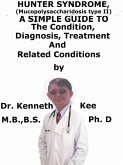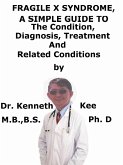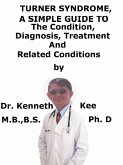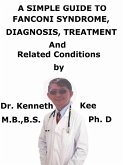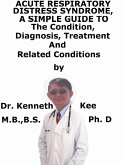Klinefelter syndrome is a genetic disorder that happens in males with an extra X chromosome.
It happens in males and is linked with hypo-gonads and infertility.
Klinefelter syndrome happens in about 1 out of 500 to 1,000 baby boys.
Cause
Normal people have 46 chromosomes.
Chromosomes hold all of the genes and DNA, the building blocks of the body.
The 2 sex chromosomes (X and Y) decide if the baby becomes a boy or a girl.
Girls normally have 2 X chromosomes.
Boys normally have 1 X and 1 Y chromosome.
Klinefelter syndrome occurs when a boy is born with at least 1 extra X chromosome.
Normally, this happens due to 1 extra X chromosome.
This is recorded as XXY.
The testis formation is involved leading to hypo-gonadism and low testosterone secretion.
Symptoms may be:
1. Disproportionate body appearances (long legs, short trunk, shoulder equal to hip size)
2. Abnormally large breasts in boys (gynecomastia) in 50 per cent
3. Infertility
4. Sexual problems - Sexual desire and ability to have erections impaired
5. Penis is small
6. Testes are small, insensitive and firmer than usual
7. Less than normal amount of pubic, armpit, and facial hair
8. Tall height
9. Weaker muscles
10. Language learning or reading impairment may be present
Diagnosis of Klinefelter Syndrome is often based on
1. Medical examination of appearance
2. Buccal smear for cells to test for chromosones
3. Karyotyping (checking the chromosomes)
4. Semen count
Blood tests will be done to check hormone levels such as:
5. Blood test for testosterone (low),
6. Blood follicle stimulating hormone (raised),
7. Blood luteinizing hormones (raised or normal)
8. Blood estradiol, a type of estrogen (raised)
9. Urinary gonadotropins are raised due to abnormal Leydig cell function
Treatment should focus on 3 major facets of the syndrome:
1. Hypo-gonadism,
2. Gynecomastia, and
3. Psychosocial problems
1. Male hormone treatment (testosterone) can help:
a. Grow body hair
b. Improve appearance of muscles
c. Improve concentration
d. Improve mood and self esteem
e. Increase energy and sex drive
f. Increase strength
In most cases testosterone is started at puberty, around age 12 years
Regular testosterone injections can also:
a. Increase strength and facial hair growth;
b. Improve a more muscular body type;
c. Raise sexual desire;
d. Enlarge the testes;
e. Improve mood, self-image, and behavior; and
f. Protect against precocious osteoporosis.
Testosterone therapy does not treat infertility or gynecomastia
Speech, physical and behavioral therapy helps.
Physical therapy is advised for boys with hypo-tonia or delayed gross motor skills that may involve muscle tone, balance, and coordination.
Occupational therapy is advised in boys with motor dyspraxia (a developmental disorder of the brain in childhood causing difficulty in activities requiring coordination and movement).
TABLE OF CONTENT
Introduction
Chapter 1 Klinefelter Syndrome
Chapter 2 Causes
Chapter 3 Symptoms
Chapter 4 Diagnosis
Chapter 5 Treatment
Chapter 6 Prognosis
Chapter 7 Lynch Syndrome
Chapter 8 Marfan Syndrome
Epilogue
Dieser Download kann aus rechtlichen Gründen nur mit Rechnungsadresse in A, B, CY, CZ, D, DK, EW, E, FIN, F, GR, H, IRL, I, LT, L, LR, M, NL, PL, P, R, S, SLO, SK ausgeliefert werden.




